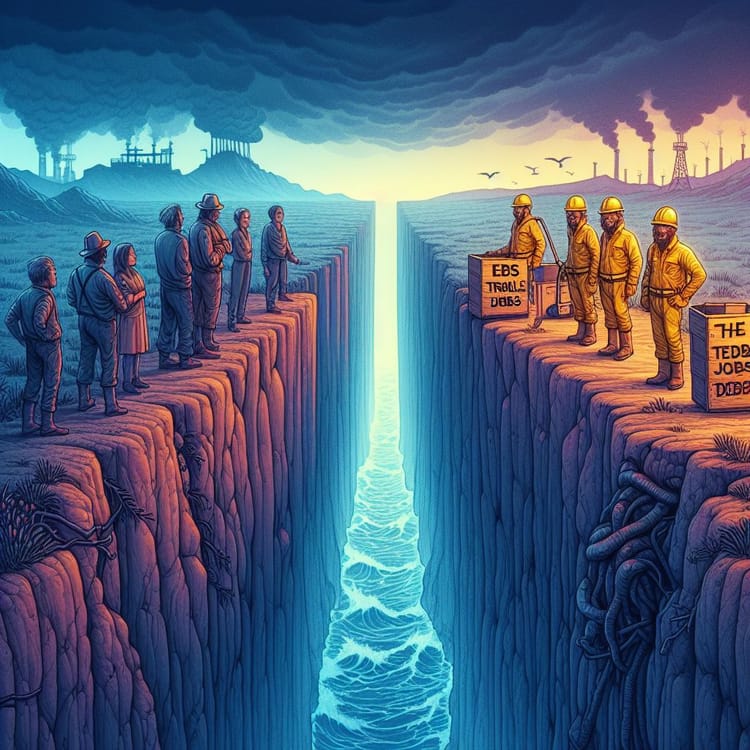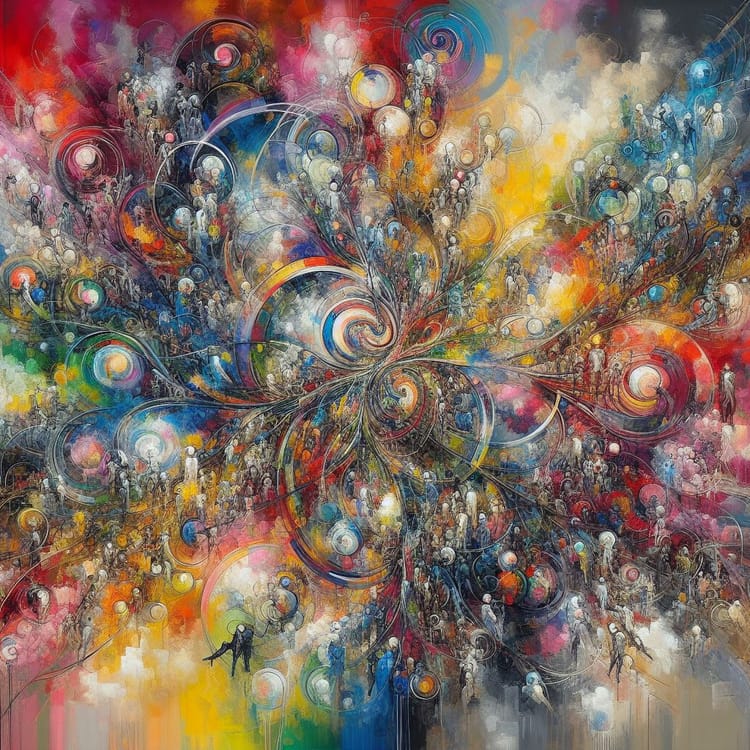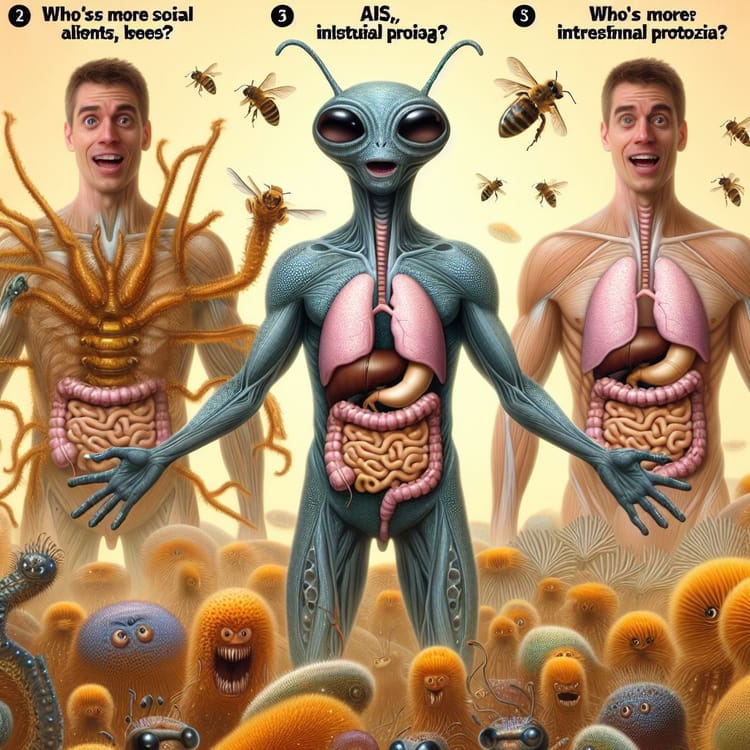Have We Truly ‘Been Here Before’?

There is a great deal to learn from the past. The most import lesson: be skeptical of easy answers. This week we find powerful insights in how AI is changing people.
Already a subscriber? Please share with a friend!
Mad Science Solves...
In “This Is Not The Industrial Revolution”, I wrote about the tired old claim that the impact of AI will be just like the impact of steam engines and factory lines. “Stop worrying about it—we’ve been here before.” I heard those very words just yesterday from a panelist at a Brookings Institute event. Apart from the laziness of simply repeating zeitgeisty phrases, turning the complex realities of today and the valuable lessons of the past into throwaway lines from a mediocre chatbot doesn’t help anyone develop good policy.
As we explore in the Research Roundup below, actually looking at how and why AI changes people can present exciting paths to both economic and human development. “Don’t worry your pretty little head about it,” holds no such value.
This is, in part, why I’m so excited to announce two exciting new projects. First, I’ve been asked to become the founding board chair of the new UC Berkeley Neurotech Collider Lab. We will be bringing together students and faculty, engineers and neuroscientists, entrepreneurs and academics, in pursuit of some of the biggest challenges in applied neurotechnology. I am immensely proud to be reconnecting with Berkeley, and to be adding my expertise to improving medical treatments, assistive technologies, and just plain ol’ cool-ass scifi shit. (A similar announcement is on the way for the UK.)
I’ve also joined the amazing advisory board at Jobs for the Future (JFF), “Where big ideas launch and scale for big impact on the future of work and learning.” And, I'll be giving the keynote for their annual conference in DC this July. If you want to know how to transform the future of work and education…for the better…then you’d better be there!
I have so many new projects on how different AI affects education & future work,, the neuroscience of trust & new life-changing neurotechnologies, AI & civil rights, and so much more. 2024 is taking off.
Stage & Screen
- Feb 28 online: A Q&A with the legal team at Siemens about how AI will affect their industry (which is very relevant to this week's newsletter).
- Mar 18-19 in NYC: How is AI transforming HR?
- Should I give a talk at the TransTech Summit?
- Apr 12 in HK: I'll be talking neurotechnologies and AI at the HK Cyberport Digital Economy Summit (buy tickets!)
- plus, I might be visiting Singapore and Manila around the stay time...book me!
- May 8 in Boston: chatting with BCG
- May 8-10: I return to Singularity University
- May 23 in Seoul: keynoting the Asian Leadership Conference! (from last year)
- Mid-June in UK & EU: Buy tickets for the Future of Talent Summit and so much more!
If your company, university, or conference just happen to be in one of the above locations and want the "best keynote I've ever heard" (shocking spoken by multiple audiences last year)?
<<Book me NOW before my schedule fills up!>>
Research Roundup
Substitute
Change how you are thinking about AI. It is a truly powerful tool, but I’ve shared a number of stories of AI making us worse in the long run even as it boosts us in the moment. (Look up my articles on automated navigation.) It is not all bad news, however; we just need to look at how the AI is boosting us.
An excellent example is augmented driving: is the AI enhancing our own decision-making or replacing it. Research found that “autobraking assistance increases human altruism, such as giving way to others”, which is further enhanced when the drives could communicate to coordinate “mutual concessions”. Here, the AI augmentation improved prosociality and coordination.
In contrast to autobraking, “autosteering assistance” substituted for human decision-making. This in turn “completely inhibits the emergence of reciprocity between people in favor of self-interest maximization”. And this negative effect on perspective-taking and coordination “persist even after the assistance system is deactivated.”
Understanding the effect of AI on people—employees, students, voters, and neighbors—requires understanding how it’s changing them. In this case, the “difference between autobraking and autosteering assistance appears to relate to whether the assistive technology supports or replaces human agency in social coordination dilemmas.” Augmentation enhances collective performance; substitution surfaces selfishness (and likely decreases agency).
Importantly, substitution and direct augmentation are only 2 of many forms of augmented intelligence that I track in my research and inventions. Productive friction, context enhancement, parallel role-modeling, and other types of augmentation all have their own impacts on the humans and even on the AIs themselves. In the end, the thoughtful will reap the long term benefits of augmented intelligence, while the fast will wonder why that initial productivity bump just disappeared.
Technology should not only make us better when we are using it, it should make us better than where we started when we turn it off again.
I'm Not Tired of Always Being Right
Any of you who’ve been following me for some time can remember my stories from 10 years ago of early machine learning models writing code and AI “lawyers” beating humans in contract review. Based on this work, I have been warning of seismic changes in the professional labor force for years as intelligence becomes a commodity and even high-skilled but routine labor becomes deprofessionalized. If you haven’t noticed, those “predictions” are all coming true.
In a recent comparison, various versions of large language models (LLMs, such as GPT4, Claude 2.1, and Plam2) were tasked with reviewing contracts, and their performance was compared to those of junior lawyers who normally do this work. Completely unsurprisingly and in keeping with my 10-year-old observations, “LLMs complete reviews in mere seconds, eclipsing the hours required by their human machine learning ”. The LLMs matched or exceeded the performance of the human lawyers at a “staggering 99.97% reduction in cost”.
There is no knowledge that is robot-proof. No routine skill, however esoteric or hardwon, will guarantee a job in an AI-rich world. None of us are so well trained that we’re worth paying more than 3,000 times the cost of an AI.
What is left? The Unknown.
Terrified? Let's explore the unknown together in my upcoming book, How to Robot-Proof Yourself?





